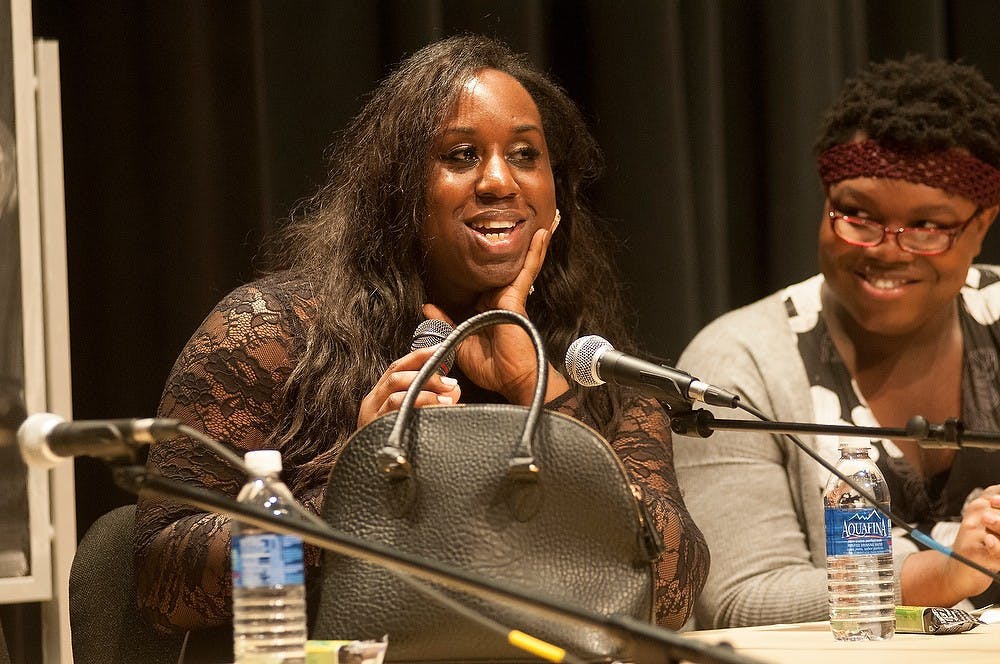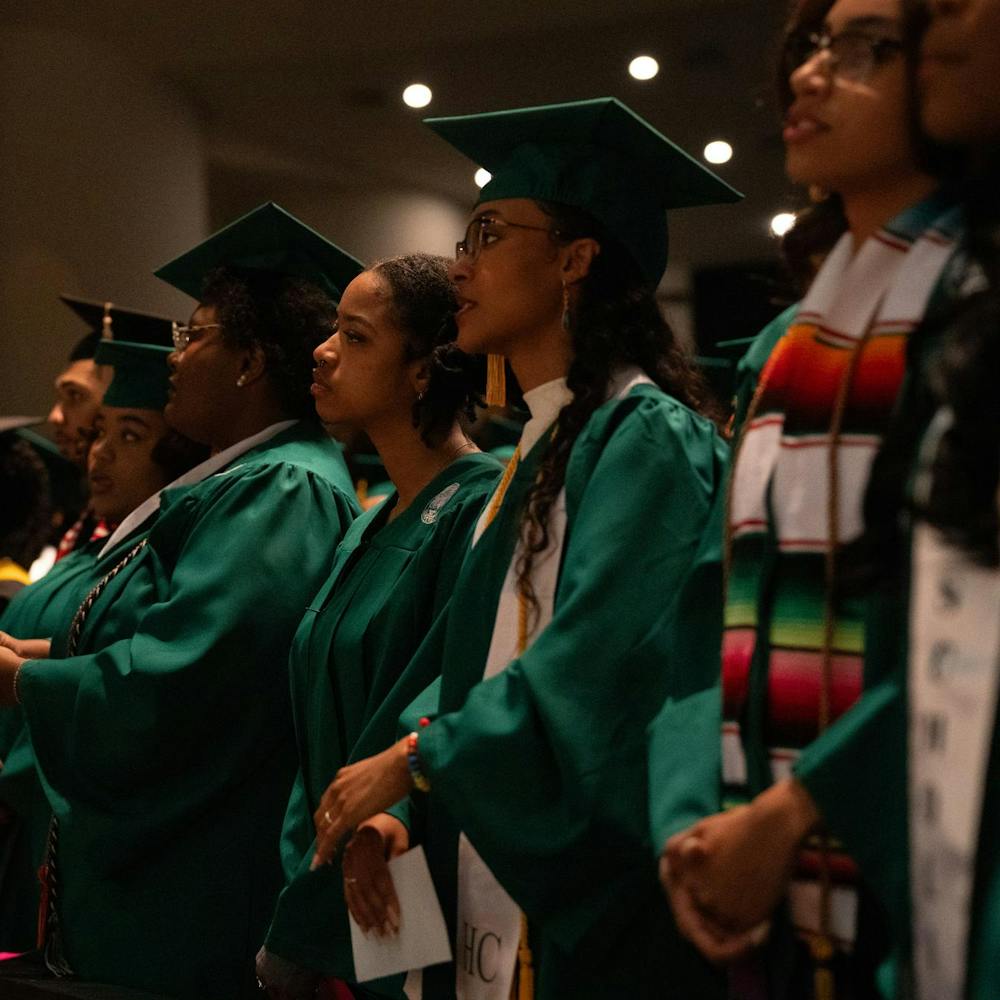On a Saturday night in June 2011, CeCe McDonald was attacked by a racist, transphobic mob while walking to the grocery store. After stabbing a person while defending herself, McDonald was sentenced to 41 months in a men’s prison for second degree manslaughter after one of her attackers died following the incident.
As a black transgender woman and LGBTQ activist, McDonald’s attack drew the attention of many, inspiring other activists to come together and fight for her release.
Through community activism, McDonald was released in January 2014 after serving 19 of her 41-month sentencing.
McDonald accompanied other black transgender panelists speaking toward the transgender community at MSU Monday evening in the Residential College in the Arts and Humanities Theatre.
McDonald uses her freedom to raise awareness about intersectional movements as an activist for racial justice and transgender liberation, aiming to inspire others to take action against mass incarceration.
The event was sponsored by West Circle PRIDE, the Black Student Alliance, Students United, African and African American Studies, the LBGT Resource Center, among many others.
In addition to McDonald, panelists Patricia Fly, Ahya Simone, Racquelle Trammell and Bre’ Campbell represented all black trans women, telling their stories and sharing advice.
McDonald advocated for a greater sense of community and compassion, which helped her through her time in prison.
Other members on the panel spoke about transitioning, particularly in college.
“Your transition is your own, and you do it at your own pace,” Trammell said. “You do it when you feel right, the setting doesn’t define you.”
Trammell credits her strength and strong identity in her transgender body to an ongoing transition and patience to her authentic true self.
“You don’t let anyone else write your narrative,” Trammell said.
Transitioning in the middle of her freshmen year at Wayne State University, Ahya Simone had a different experience than many of her transgender friends.
Simone felt a lot of opposition and isolation from the general residence at Wayne State University after living in the dorms her freshman and sophomore years.
“It was very isolating at times being in the largely cis spaces and being the only open and out trans women on campus,” Simone said.
Cis, or cisgender, is defined as a type of gender identity where individuals’ match their own gender to the sex they were assigned at birth, and is something Simone has come to believe is not the standard.
Simone described the depressing and numbing feelings she received from daily transphobia and harassment at school.
As a recent December graduate, Simone said a person can never have too much self-care.
“I keep affirming people around me at all times, or as much as I can to help to minimize my exposure to transphobia and anti-blackness,” Simone said. “That has been working for me for the past few months, just to make sure I have affirming people around me as much as I can and minimize my time in spaces that are not affirming.”
Simone said loving herself has been a journey, but a rewarding one.
“Be consumed with being you, not to be cis,” Simone said. “Although passability is a safety issue, it can be a mode of safety and protection by passing as cis. I would say, be consumed with being yourself, recognize yourself and own it.”
Another panelist, Campbell, identified as a woman since age 3, advocating for knowledge in transitioning.
“I’m a firm believer that it’s one thing to want to transition, but it’s another thing to actually do it and to make sure that you have all of the right information in front of you so you make the most informed decision with your transition,” Campbell said.
Campbell said she believes transitioning is a growing and learning experience, unassociated with her physical body.
“A lot of times we stumble into it thinking it’s going to look one way, but it turns it ends up being the opposite of what we envision it to be,” Campbell said.
Focusing on providing support to future transgender generations and using her “transcestors” as inspiration for beginning the transgender acceptance movement, McDonald advocated for a collective movement including all races and genders.
“We have to think about the things we need to leave for them, and the things we want to leave for them,” McDonald said. “Because they’re going to carry the torch.”







